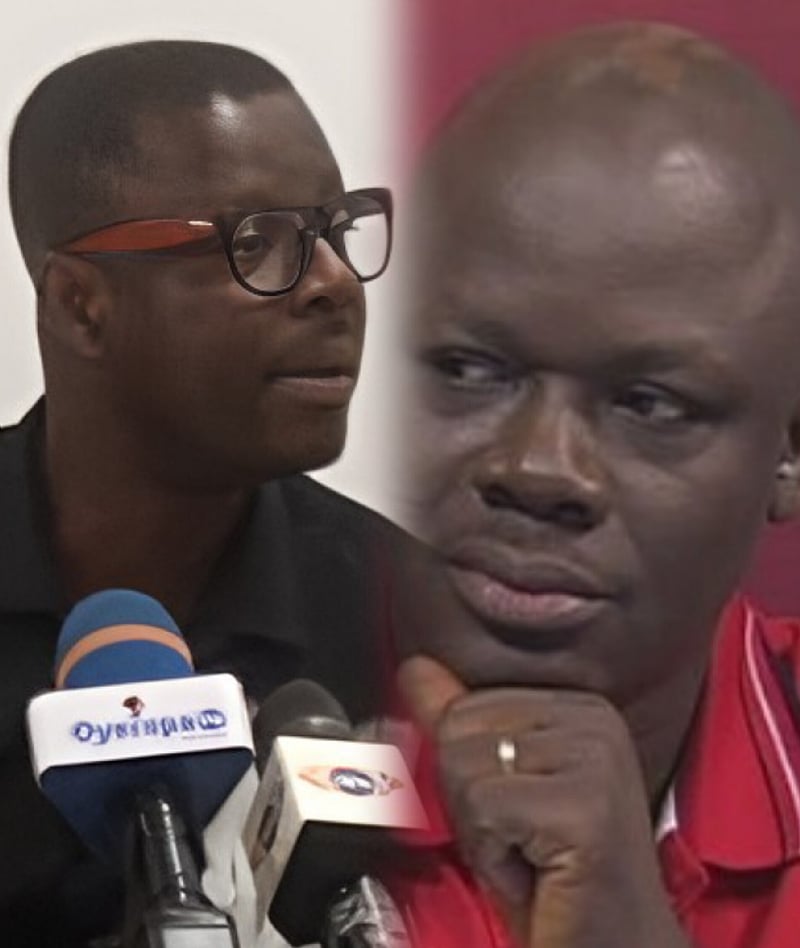The ongoing feud between lawyer William Kusi and journalist Sampson Lardi Anyenini has reignited, with Kusi vehemently criticizing Anyenini for what he perceives as a persistent and unjustified campaign against Member of Parliament Kennedy Agyapong. Kusi’s renewed attack stems from recent comments made by Anyenini on his show, Newsfile, which Kusi deems defamatory and damaging to Agyapong’s reputation. Kusi’s strong defense of Agyapong underscores the deep loyalty and protectiveness he feels towards the controversial politician. This latest salvo not only intensifies the personal animosity between Kusi and Anyenini but also highlights the broader political tensions and polarized media landscape within which these exchanges occur.
Kusi’s critique extends beyond the content of Anyenini’s commentary to encompass his perceived abuse of the Newsfile platform. He accuses Anyenini of betraying the legacy of the program by injecting partisan bias into what should be an objective journalistic endeavor. Kusi’s argument rests on the idea that Anyenini’s personal opinions, particularly those critical of Agyapong, compromise the integrity of Newsfile and diminish the quality of public discourse. This accusation strikes at the heart of journalistic ethics and raises questions about the balance between personal views and professional objectivity in media presentations.
The heart of Kusi’s argument centers on the perceived hypocrisy of Anyenini’s dual roles as a journalist and a legal practitioner. He questions Anyenini’s credibility in both spheres, suggesting that his journalistic work lacks objectivity and that his legal expertise is superficial, based primarily on textbook knowledge rather than practical experience. This line of attack seeks to undermine Anyenini’s authority and influence by questioning his competence in both professions. By emphasizing the potential conflict of interest between these two roles, Kusi attempts to discredit Anyenini’s pronouncements on both legal and political matters.
Furthermore, Kusi’s remarks reveal a strong personal allegiance to Kennedy Agyapong. He characterizes the criticisms leveled against the MP as politically motivated attacks designed to tarnish his image. By positioning himself as Agyapong’s staunch defender, Kusi signals his unwavering support for the politician and his willingness to confront anyone he perceives as a threat. This personalized defense underscores the close relationship between the two and suggests that Kusi’s attacks on Anyenini are motivated by more than just professional disagreement.
Kusi’s forceful warning to Anyenini and other critics of Agyapong suggests a broader strategy to preemptively silence any future dissent. He vows to personally respond to any perceived attacks against Agyapong, effectively positioning himself as the MP’s gatekeeper and protector. This assertive stance is meant to deter further criticism and create an environment where Agyapong’s actions are less likely to be scrutinized. It also contributes to a climate of intimidation, potentially discouraging open dialogue and debate about Agyapong’s conduct.
In essence, Kusi’s renewed criticism of Anyenini represents a culmination of several interconnected issues: loyalty to a political figure, concerns about journalistic ethics, questions of professional credibility, and a desire to control the narrative surrounding Agyapong. The highly personal nature of the attacks and the strong language used underscore the deep divisions and polarized political landscape within which these exchanges occur. Kusi’s aggressive defense of Agyapong raises important questions about the role of personal loyalty in public discourse and the potential for such loyalty to overshadow objective analysis and critique. Ultimately, the escalating tensions between Kusi and Anyenini reflect a broader trend of increasing polarization and personal attacks within the Ghanaian media landscape.














